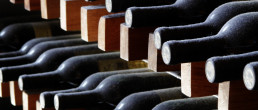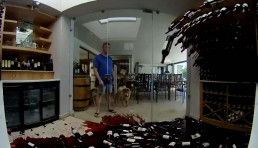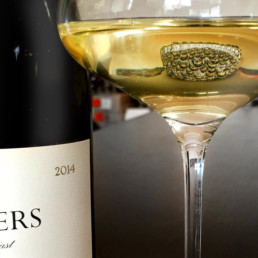Proudly, we offer plenty of killer fine wines here at D&N. Often, a lot of iconic wine is consumed when it’s, yes, delicious, but before it’s really gotten to strut its stuff. Which means that you should be cellaring these gems in the oh-so-right conditions to make that second of finally pulling the cork an absolute “Ahhhh” moment.
We all want to age gracefully, and look our best, and wine is no exception!
To this end, our founder Puneet Dhall and our D&N Account managers are well-versed to point you towards under-the-radar superstars, Californian cult wines, and of course, those “blue chip” offerings that deliver plenty of thrills now but ultimately will be poised to blow your mind should you have the patience to cellar them. Certainly, we are skilled at advising on optimising your wine cellaring capability.
There are few things worse for a wine drinker-collector than finally opening that special bottle for a special occasion, to then find its contents have withered and dulled due to poor storage.
Wine has a life cycle. The purpose of ageing wine is to bring out tertiary flavours and textural changes that can only develop with time, given the proper storage conditions to do so. This is the point of a wine cellar: to control those factors that impact the quality of age-worthy wine and take the guesswork out of storage. And, ideally, to show off your collection in style.
Don’t stuff up with a less-than-ideal Wine Storage Location
Just like Goldilocks looking for the right flavours in her bowl of porridge – you too will have your work cut out for you to find the best spot to cellar your fine wines. If you haven’t been blessed with serious resources to build a state-of-the-art cellar, or even a cool, not-too-damp basement that can double as a cellar, you could perhaps improvise with some wine racks in a “safe” place. Rule out your kitchen, laundry room or living room, where warmer temperatures could affect your wines, and look for a location not directly in line with light pouring in from a window. Maybe there is a little-used closet or other vacant storage area that could be repurposed for storing wine? You might consider investing in a standalone wine fridge, but would one be enough?
Or, better still, why not entrust your iconic wines to Dhall & Nash. To help those avid collectors with constraints of space, D&N has invested in a massive temperature-controlled wine warehouse to house our wine at an optimum and consistent temperature.
Our facility, constructed in collaboration with our warehousing partner Rohlig Logistics in 2019, houses every single one of our wines (that is over 1,000 plus different lines) at a constant 14°C. Right from the time our wines leave faraway shores, travelling in refrigerated containers to arriving in our Auckland refrigerated warehouse, then into your glass, D&N is dedicated to ensuring every wine arrives in primo condition.
With our high-tech refrigerated warehousing, space is also available for our private clients and avid connoisseurs: The service we offer is only $2.50 per month per 12 bottle (12 x 750mls) case. Conveniently, you can deposit, collect, or have your wine delivered with just 48 hours’ notice.
“The important thing,”celebrated wine writer, James Suckling says “in cellaring wine, is to make sure the temperature remains stable.”
Let’s check out some key tips to keep in mind when you cellar your fine wines:
Enemy #1 of Wine Storage - Temperature Fluctuations
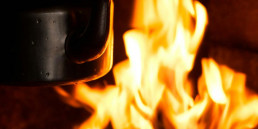
Changes in temperature can disrupt the delicate balance of compounds that make wine aromatic and tasteful. Temperature is critical to the optimum preservation of your wine, and when set correctly, you will experience the full flavour, aroma, and character your wine is capable of delivering. All wine lovers appreciate that wine is a delicate living thing. It can only tolerate a very narrow margin of temperature fluctuations. At higher or at fluctuating temperatures, wine will age faster and not necessarily in the desired way as the process becomes more volatile. To truly showcase your wines as the winemakers intended, storing them at the proper temperature is a no-brainer.
Ideally, you want to store fine wine in a cellar or wine fridge at or under 18 degrees Celsius, with a humidity level around 68 percent. The corks will expand and contract if the temperature fluctuates too much, leading to seepage and premature ageing.
Enemy #2 - Moisture
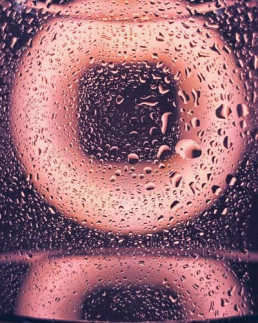
Wine corks rely on moisture in the air to stay in place. Too dry and the corks can shrivel, running the risk of premature oxidation. Lots of moisture isn’t good, either. If it’s too humid, the labels start to fall off and you could potentially build a cellar of mould. Somewhere around 60 to 70% is where you want the humidity to be, so that the corks can stay moist, and oxygen can’t get in.
Enemy #3 – Light

When wine is exposed to the sun for too long, it is said to be “light-struck.” Consider it a sunburn for wine that never goes away and can smell awful. Ultraviolet (U.V.) rays interact with the compounds in wine to produce unpleasant changes in its structure and flavour. Once they get in, they can break down the tannins that protect wine, which is why you can see white wines turn quicker than red wines, since they don’t have that tannin protection in them. This is why many wines are packaged in dark bottles, which acts just like a pair of sunglasses or a layer of SPF.
Enemy #4 – Movement
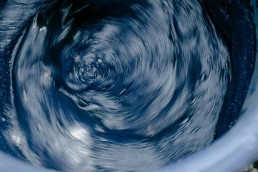
There are theories that vibration could damage wine in the long term by speeding up the chemical reactions in the liquid. Therefore, when wine is stored, you want it to experience as little movement as possible. Vibration can shake up the bottles to some degree, move the sediment around and can even create heat and friction inside the bottle. The molecular structure of the wine can change as that happens. Changes in structure equate to a changed experience while sipping. Bottle position is also important for the cork – you want to lay the wines down on its sides. That way the cork stays hydrated at all times. Like controlling for humidity, this is another effort made to keep the cork moist and prevent oxygen from leaching in. If the bottles have alternative closures (screwcaps, glass or plastic corks), this is not strictly necessary. However, just remember that horizontal racking is a space-efficient way to cellar your fine wines, and it definitely can’t harm your stelvin closured wines.
Enemy #5 – Odours
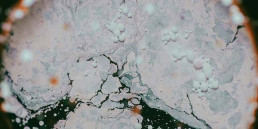
Wine “breathes” through its corks. “Off” odours from a room or a garage can get into a bottle over time and really affect the flavours and aromas of the wine. Cigar smells are another common culprit.
One final aside
Yes, the allure of collect and cellar your fine wines is intoxicating. But, if your budget doesn’t quite permit (just yet) those visions of lustrous wood, pristine glass, brass, and polished marble of your future dream cellar, keeping wines in your household refrigerator can tide you over for a couple of months – but it’s not a good bet for the longer term. The average fridge temperature falls well below 7 degrees Celsius to safely store perishable foods, and the lack of moisture could eventually dry out corks, which might allow air to seep into the bottles and damage the wine. So, please, don’t go there.
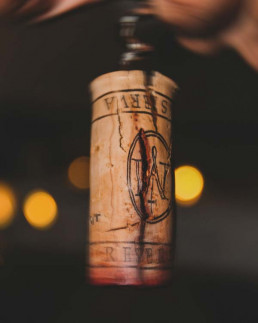
Give your D&N Account Managers a call to chat about cellaring ideas and potential options.
You may stand somewhere between a laid-back drinker and an avid collector, it’s still worth thinking about your wine storage system warranting a bit of an upgrade or investing in professional-quality storage – it will be a game-changer!
To all our D&N budding and seasoned collectors: give your superior wines just a few more years in bottle in the right environment and they’ll blossom into something truly special.
This is the real value of cellaring.
